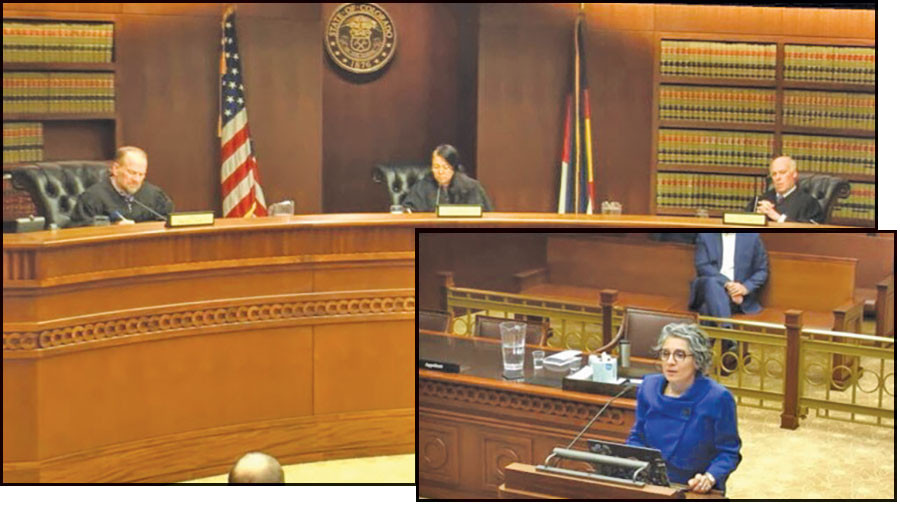Court of Appeals: Town board’s closed-door censure of trustee violated Colorado Open Meetings Law

The town board of Del Norte violated the Colorado Open Meetings Law by censuring a fellow board member during a closed executive session, the Colorado Court of Appeals ruled Thursday, reversing a judge’s decision and invalidating the censure.
In 2022, Rio Grande County District Court Judge Crista Newmyer-Olsen dismissed Laura Anzalone’s open-meetings lawsuit, concluding that the board’s opinion of her “performance as a trustee, which took the form of a censure,” is not subject to the law because a censure does not concern the “formation of public policy.”
But a three-judge panel of the state’s second-highest court disagreed, writing that Newmyer-Olsen “failed to recognize that the censure was a formal action and therefore … involved the Town’s policy-making powers.”
The Colorado Supreme Court ruled in 2004 that, in order for a public body meeting to be subject to the open meetings law, there must be “a demonstrated link between the meeting and the policy-making powers of the government entity holding or attending the meeting.”
Newmyer-Olsen reasoned that the censure of Anzalone “does not have anything to do with laws or measures that affect the general public.” But the 2004 Supreme Court ruling “expressly states” that a link exists when a meeting is convened to “discuss or undertake … formal action,” says the appellate opinion, written by Judge Timothy Schutz. “Therefore, the Board need only have discussed or undertaken, as relevant here, formal action during the executive session for it to be subject to” the open meetings law.
“[A]dopting a resolution to discuss the possible removal, or alternatively the censure under threat of future removal, of a duly elected public official clearly constitutes a formal action involving the public’s business.”
The town board adopted the censure resolution against Anzalone on Oct. 18, 2021, alleging misconduct related to her involvement in the enforcement of town codes. The Court of Appeals agreed with Anzalone, who is represented by attorney Katayoun Donnelly, that the other trustees unlawfully crafted the 260-word document during a closed-door meeting and that a subsequent vote in public “was merely a rubber stamping” of that decision.
The open meetings law, part of the Colorado Sunshine Act of 1972, requires local public bodies to open any meetings of a quorum or three or more members — whichever is fewer — at which public business is discussed. It prohibits public bodies from discussing public business in executive sessions beyond the scope of certain authorized topics, and it bars them from adopting any policy or position in secret.
“Discussing possible removal or other sanctioning of a member of a local public body is unquestionably the ‘public business’ of that body,” the Colorado Freedom of Information Coalition wrote in an amicus brief submitted to the Court of Appeals last June.
In the appellate opinion, Schutz noted the Court of Appeals’ December 2023 ruling in a similar case involving the Aurora City Council’s decision in an executive session to end censure proceedings against a fellow councilor. “In both cases, the result was the same: the formal action taken in executive session violated the (open meetings law),” Schutz wrote.



